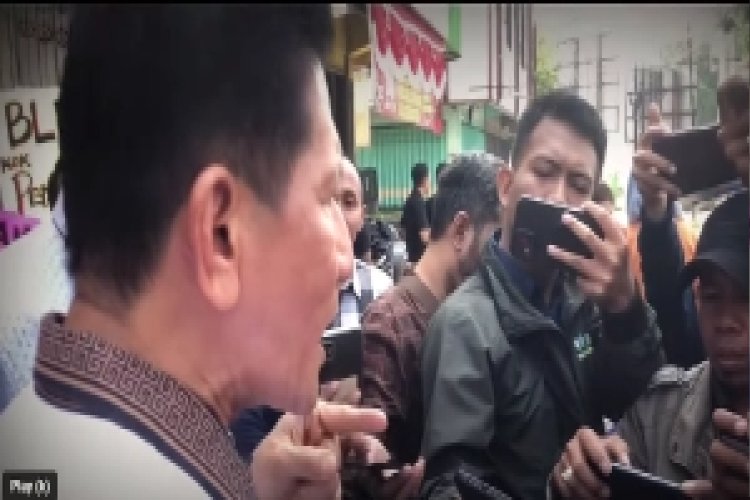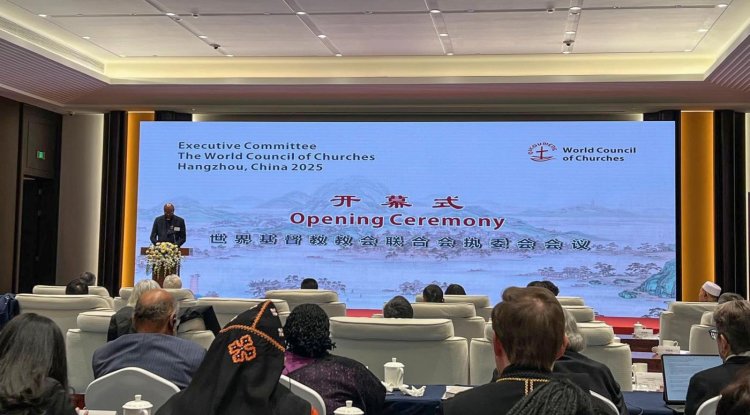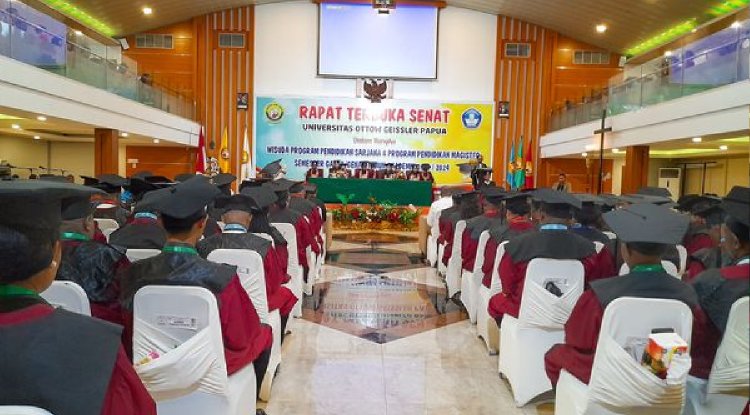CHURCH EVICTION ORDER OVERTURNED IN INDONESIA

In a rare move in Indonesia, an administrative court recently overturned a local government order for a church to vacate its worship site, sources said.
The Jombang Regency Government in East Java is appealing the March 19 ruling of the Surabaya State Administrative Court that overturned the regency's order for owners of the Simpang Tiga shophouse complex in Jombang to vacate their premises, including Herri Soesanto, pastor of Good God Church, and his wife Liliek Soenarto.
When the couple's shophouse church in the complex was forcibly closed on August 18, 2024, about 50 officials from Jombang Regency dragged Pastor Herri from the worship site and sealed the premises where his church met, he said in a podcast last year.
The sealing of the worship site was part of a local government effort to reclaim several shops that the government claims it owns. The complex is located in Jombang, about 80 kilometers west of Surabaya, the capital of East Java Province.
The three-judge panel overturned the order, stating that the objections to the shophouse owners' lawsuit were unacceptable, according to KBRN radio.
"We greatly appreciate the ruling," Sonny Saragih, chairman of the Legal Assistance Institute HOPE, which represented the church, was quoted as saying. "The judge has considered it wisely, and this is a step forward in upholding good governance."
An attorney for the local government, Yaumassyifa, said on March 27 that officials would file an appeal, according to kredoNews.com.
Yaumassyifa stated that the property legally belongs to the Jombang Regency Government. A spokesperson for the Jombang Non-Governmental Organization Alliance, Suhartono, said he was surprised by the verdict and questioned it, as reported by kredonews.com.
"We consider the eviction notice to be correct because the occupants have not fulfilled the obligations they should comply with," Suhartono reportedly said. He also questioned the competence of the judges. "The shophouse is on land owned by the Jombang Regency Government, and since the occupants do not want to pay rent, evicting them is the right thing to do," he added.
Suhartono said he would report the case to the Judicial Commission and the Corruption Eradication Commission.
Hadi S. Purwanto, an activist close to the Jombang Regency Government, agreed that the occupants do not pay rent.
"This is purely because Pastor Herri Soesanto, as a tenant, has not paid rent to the local government. It has nothing to do with the church," Hadi told Morning Star News, explaining that besides using the first floor of the shophouse for a store and the second floor for the church, Pastor Herri is now running a business in the complex.
Pastor Herri filed a lawsuit against the Jombang government on November 27 but lost the case, after which he refiled in the Surabaya State Administrative Court and won.
The pastor asserts that he was not the tenant but the owner of the shophouse, said his former attorney, Sri Sugeng Pujiatmiko.
"Mr. Herri Soesanto bought it; he bought it from a company that obtained management rights from the government," Pujiatmiko said. "So according to him, he has legal rights."
However, a local government source stated that a private company, in collaboration with the local government, built the shophouse complex and therefore can charge rent.
"The residents argued that the shophouses they occupy were purchased from the PT [company] and are unrelated to the rent scheme set by the local government," the source told Jatimnews.com.
Pastor Herri said he bought the shophouse from a private company and thus does not have to pay rent.
"The developer did not inform us about the scheme at all," he said, adding that shop owners had a 2016 building-use rights certificate that they continued using even though it expired in 2016, as it is common in Indonesia to delay legalities as long as payments are made.
The church tried to extend the validity period of the building-use rights certificate, but officials denied it, demanding they pay rent and back-rent.
"In 2022, the local government asked us, the buyers, to pay rent from 2016 to 2021, with a payment of 19,105,000 rupiah [$1,228 USD] per year," he said.
Thus, even though the church had purchased the property and paid land and building taxes without being informed by the developer about the arrangement with the government to develop it, the developer and officials demanded they pay rent.
What's Your Reaction?

















